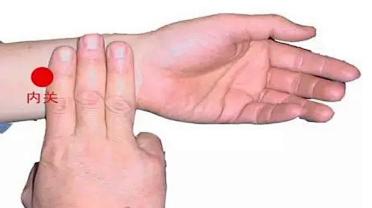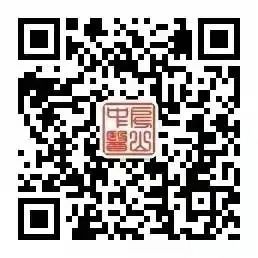
Knowledge on Nurturing the Five Organs
Nurturing the Five Organs,
the Six Bowels will then be at peace.

Traditional Chinese Medicine (TCM) categorizes the important organs of the human body into two main types: the Zang (五脏) and the Fu (六腑). The former includes the heart (心), liver (肝), spleen (脾), lungs (肺), and kidneys (肾), which collectively store vital essence (精气); the latter includes the gallbladder (胆), stomach (胃), large intestine (大肠), small intestine (小肠), bladder (膀胱), and San Jiao (三焦), which are responsible for digestion, nutrient absorption, and excretion.
The human body, as an organic whole, centers around the Five Organs. The Zang and Fu are interrelated; thus, nurturing the Five Organs ensures the Six Bowels can function harmoniously.

Heart Health

··


1. Maintain a Good Mood

TCM believes that “the heart is associated with joy (志为喜),” indicating a close relationship between the heart’s physiological functions and the emotion of joy. Positive emotions are beneficial stimuli for the body and promote health. Therefore, one should learn to adjust their emotions and maintain an optimistic attitude in various life situations.




2. Balanced Diet

Diet should be light, avoiding overeating, smoking, and excessive alcohol consumption. Include heart-nourishing foods such as almonds (杏仁), lotus seeds (莲子), yellow soybeans (黄豆), black sesame (黑芝麻), wood ear mushrooms (木耳), and red dates (红枣).




3. Acupoint Massage

Regularly massaging the Neiguan (内关) acupoint can enhance heart function. This can be done while walking or during breaks, spending about two minutes each day to massage until a feeling of soreness is achieved.
Neiguan acupoint: located on the inner side of the forearm, between the two tendons, 2 inches above the wrist crease.







Liver Health

··

According to TCM theory, the liver (肝) is responsible for storing blood and regulating the flow of Qi (气) and emotions. If the liver is not functioning well, our Qi, blood, and emotions can be significantly affected. Therefore, liver care is crucial.


1. Light Diet

Avoid greasy, spicy, and stimulating foods such as fatty meats, chili peppers, and fried foods that can cause internal heat. Do not overeat, and pay attention to food restrictions based on your body constitution. Maintain a balanced diet with grains (五谷) such as rice (稻谷), wheat (麦子), sorghum (高粱), soybeans (大豆), and corn (玉米) as the foundation, and fruits (五果) such as plums (李), apricots (杏), dates (枣), peaches (桃), and chestnuts (栗) as supplements.




2. Ensure Adequate Sleep

According to the Huangdi Neijing (《黄帝内经》), the time between 1:00 AM and 3:00 AM is when the liver meridian is most active. During this time, it is best to take a short nap to nourish the liver, especially if you are staying up late or working overtime.




3. Massage the Taichong (太冲) Acupoint

The Taichong acupoint is the most important point on the liver meridian and is effective for treating various liver diseases. Individuals who are often anxious or irritable should massage this point for about two minutes daily until a noticeable soreness is felt.
Taichong acupoint: located on the dorsum of the foot, approximately one finger’s breadth above the web between the first and second toes.







Spleen Health

··

TCM holds that “the spleen is the foundation of postnatal life (脾为后天之本),” responsible for the transformation and transportation of food and fluids into essence, which is then converted into Qi, blood, and body fluids, ensuring the normal functioning of the body. Therefore, spleen health is of great significance.


1. Avoid Excessive Stress

TCM states that “excessive thinking harms the spleen (思虑伤脾).” Overthinking can impair the spleen’s function, leading to sluggish digestion and absorption. Therefore, individuals under pressure should learn self-relaxation techniques.




2. Do Not Overeat

Do not overeat; maintain a regular eating schedule, and avoid foods that harm the spleen and stomach. Refrain from overly spicy, sweet, salty, or bitter foods.



Lung Health

··

According to the Huangdi Neijing, “the lungs are the minister of the body, regulating the body’s functions.” This indicates that the lungs hold a high position among the organs. To maintain lung health, one should pay attention to the following aspects:


1. Avoid Hot and Dry Foods

The lungs are associated with the metal element and are inherently dry, corresponding to the dry air. Therefore, they are particularly sensitive to heat, which can harm them. During the summer and midday, it is important to avoid consuming hot and dry foods.




2. Practice Deep Breathing

The lungs govern Qi and respiration, and the weather affects the lungs. Therefore, TCM emphasizes the practice of deep breathing, which should be done outdoors every morning and evening.




3. Avoid Excessive Sadness

Worry and sadness are closely related to the lungs. Regardless of the problems encountered in life or work, try not to worry or feel sad. If these emotions arise, engage in activities that bring joy to overcome sadness.



Kidney Health

··

TCM considers the kidneys (肾) as the foundation of congenital life, responsible for storing essence, growth, development, reproduction, and fluid metabolism. To nourish and support kidney health, one should focus on the following:


1. Pay Attention to Diet

Ensure adequate protein intake while avoiding picky eating and dieting that can lead to malnutrition. Regularly consume kidney-nourishing foods such as black sesame (黑芝麻), yam (山药), lily bulbs (百合), goji berries (枸杞子), black beans (黑豆), and lotus seeds (莲子).




2. Engage in Appropriate Exercise

Physical activity involves the movement of joints, muscles, and other tissues. Regular walking, jogging, or practicing Tai Chi can significantly benefit kidney health and overall well-being.

(Contributed by: Outpatient Service Center, Yang Dan)
Previous Highlights

1.Standing at the Academic Frontier, Professor Sun Luying Translates “Nutrition and Health” for Publication

2.[Announcement] Beijing University of Chinese Medicine Fangshan Hospital Launches “Epidemiological Survey + Health Code” Two-in-One

3.Our Hospital Officially Launches 114 Time Slot Appointment Registration!
DisclaimerThis platform’s articles and images are sourced from the internet. We respect original content, and our core goal is to work together to help more people achieve health and happiness. If there are any infringements, please contact us, and we will delete them promptly. Beijing University of Chinese Medicine Fangshan HospitalBeijing University of Chinese Medicine Sixth Clinical Medical CollegeBeijing Fangshan District Traditional Chinese Medicine Hospital
Beijing University of Chinese Medicine Fangshan HospitalBeijing University of Chinese Medicine Sixth Clinical Medical CollegeBeijing Fangshan District Traditional Chinese Medicine Hospital

// Beijing University of Chinese Medicine Fangshan Hospital //
Appointment Phone Numbers
Main Hospital: 89322812
Yuehua Branch: 89358733
Dongling Branch: 81302098
Yanshan Branch: 81334541
Liangxiang (West Gate) Branch: 69382142

